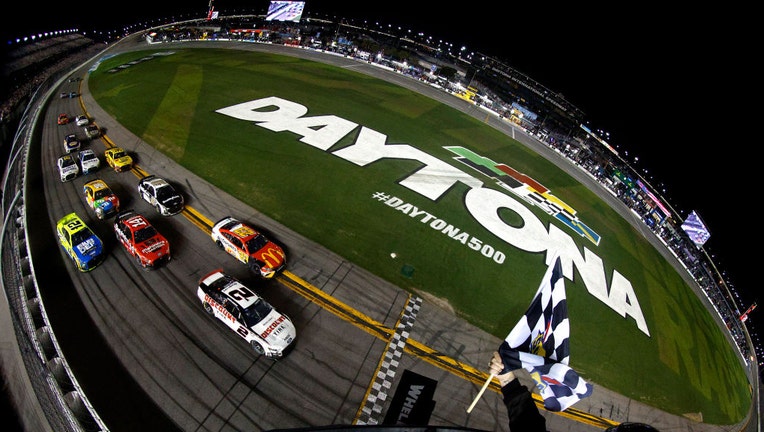Introduction
For motorsport enthusiasts and fans of high-speed thrills, the Daytona 500 is an event that needs no introduction. Known as “The Great American Race,” this iconic NASCAR (National Association for Stock Car Auto Racing) event holds a special place in the hearts of racing fans worldwide. In this article, we will explore the history, significance, and enduring impact of the Daytona 500 on the world of motorsport.
For motorsport enthusiasts and fans of high-speed thrills, the Daytona 500 is an event that needs no introduction. Known as “The Great American Race,” this iconic NASCAR (National Association for Stock Car Auto Racing) event holds a special place in the hearts of racing fans worldwide. In this article, we will explore the history, significance, and enduring impact of the Daytona 500 on the world of motorsport.
A Historical Milestone:
The Daytona 500, inaugurated in 1959, marked a significant turning point in American motorsport. It was the first race held at the Daytona International Speedway, a state-of-the-art track designed specifically for high-speed stock car racing. This event symbolized the rise of NASCAR as a premier motorsport organization.
Enduring Traditions:
Over the decades, the Daytona 500 has cultivated enduring traditions that add to its allure. The iconic pre-race event, the Daytona 500 Experience, draws thousands of fans, while the pace car laps and military flyovers enhance the spectacle. The winner’s celebration in Victory Lane is a moment of pure exhilaration, a testament to the enduring traditions that make this race special.
Legends and Heroes:
The Daytona 500 has been a stage for legendary drivers like Richard Petty, Dale Earnhardt, and Jeff Gordon to etch their names into motorsport history. These heroes of the track have contributed to the event’s legacy, showcasing their skill, determination, and tenacity in pursuit of victory at Daytona.
Global Impact:
While “The Great American Race” is an iconic event in the United States, its impact is global. The Daytona 500 attracts a diverse international audience of racing enthusiasts, making it a true showcase of motorsport on the world stage. Its influence has helped NASCAR gain recognition and fans worldwide.
Technological Advancements:
The Daytona 500 has also been a breeding ground for technological advancements in motorsport. From aerodynamic improvements to safety innovations, the race has often driven progress in stock car racing technology, making the sport safer and more competitive.
Future Aspirations:
As the Daytona 500 continues to evolve, it faces new challenges and aspirations. Sustainability and inclusivity have become key considerations, with efforts to reduce the sport’s environmental footprint and make it more accessible to a broader audience.
In conclusion, the Daytona 500 isn’t just a race; it’s a cornerstone of motorsport history, a place where legends are made, and traditions endure. Its impact resonates far beyond the racetrack, shaping the world of motorsport and inspiring generations of fans and competitors alike. As we look to the future, the Daytona 500 remains a symbol of speed, skill, and the enduring spirit of motorsport.
Should you desire more in-depth information, it’s available for your perusal on this page: Budweiser Waves Green Flag For Sponsorship Of Daytona …
The roots of the Daytona 500 can be traced back to the early 20th century when car enthusiasts flocked to Daytona Beach, Florida, to test the limits of their vehicles on the hard-packed sands. In 1959, the inaugural Daytona 500 took place at the newly built Daytona International Speedway, marking the birth of a new era in American racing.
nullFor additional details, consider exploring the related content available here Daytona International Speedway: Home
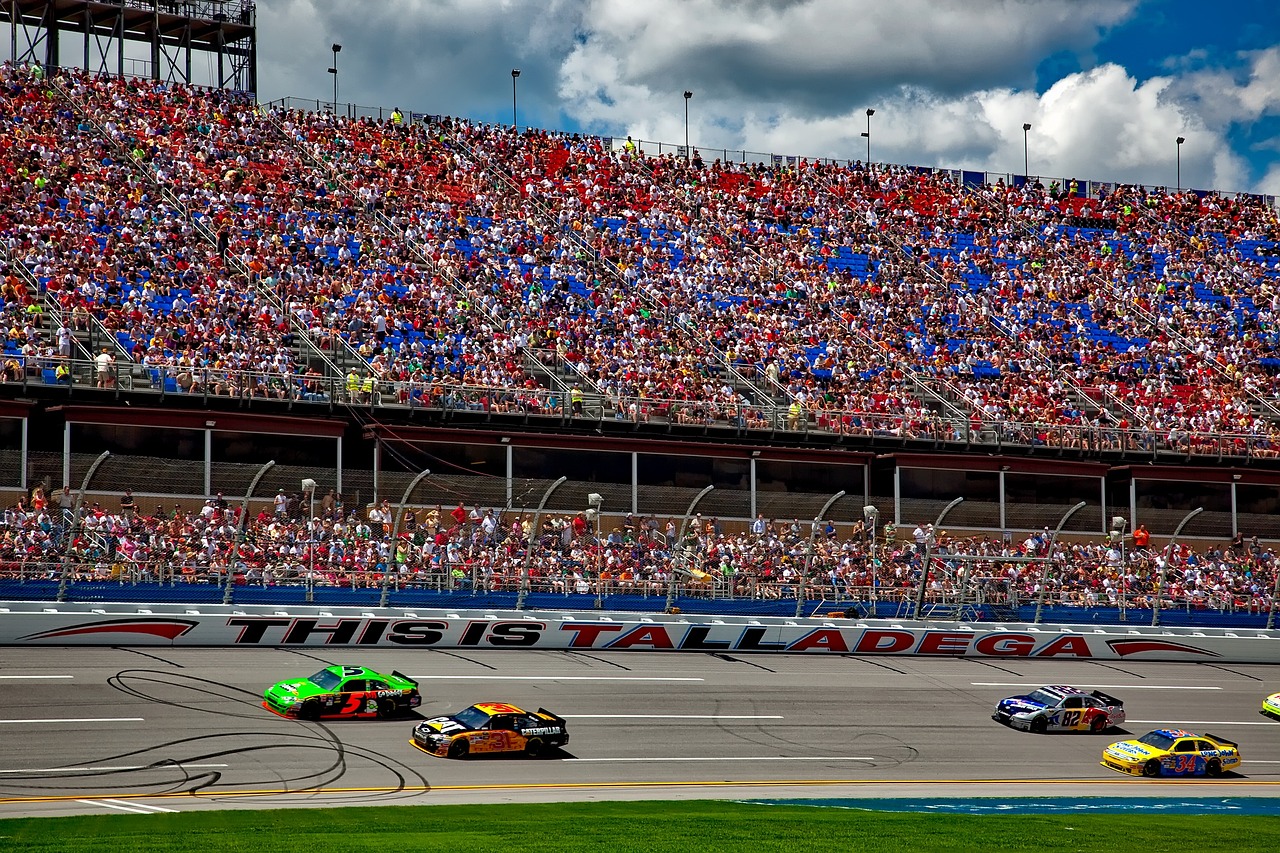
Daytona International Speedway, often referred to simply as “Daytona,” is a racing cathedral that has witnessed countless moments of glory and drama. Its high-banked turns, including the steeply angled Daytona 31-degree banking, are a testament to the engineering ingenuity that allows drivers to achieve breathtaking speeds on its 2.5-mile oval.
The 200-lap, 500-mile race is a grueling test of skill, strategy, and endurance, making it one of the most prestigious events in motorsport. Winning the Daytona 500 is a career-defining achievement for any NASCAR driver and cements their legacy in the sport’s history.
Daytona International Speedway, often lovingly referred to as “Daytona,” stands as a hallowed ground where the roar of engines and the thunder of applause have blended into a symphony of motorsport excellence. Its iconic high-banked turns, especially the daunting 31-degree banking, serve as an awe-inspiring testament to the incredible feats of engineering that enable drivers to push the limits of speed on its 2.5-mile oval.
For decades, Daytona has been the stage for riveting dramas, where legends are born and dreams are shattered. The centerpiece of this arena is the Daytona 500, a 200-lap, 500-mile marathon that pushes drivers, teams, and machines to their limits. It’s a grueling test of skill, strategy, and endurance, making it one of the most prestigious and demanding events in motorsport.
Winning the Daytona 500 is an aspiration that drives every NASCAR driver. It’s a career-defining achievement that etches their name in the annals of racing history. Victory at Daytona signifies more than just a single race win; it’s a declaration of greatness, a statement that echoes through time. The legends who have conquered this track are forever remembered as icons of the sport, their legacies intertwined with the very fabric of NASCAR.
But Daytona is not just about the checkered flag; it’s about the stories that unfold on the track—the fierce rivalries, the heart-stopping crashes, and the daring last-lap maneuvers. It’s about the camaraderie in the pits, the dedication of the crews, and the unwavering support of the fans who make the pilgrimage to this racing mecca year after year.
In conclusion, Daytona International Speedway isn’t just a race track; it’s a cathedral of speed, where the past, present, and future of motorsport collide. It’s a place where legends are made and where the spirit of competition lives on, reminding us that in the world of racing, there is no greater glory than conquering the hallowed grounds of Daytona.
Looking for more insights? You’ll find them right here in our extended coverage: Ricky Stenhouse Jr. Wins Daytona 500 | THE BLOCK | Chevrolet
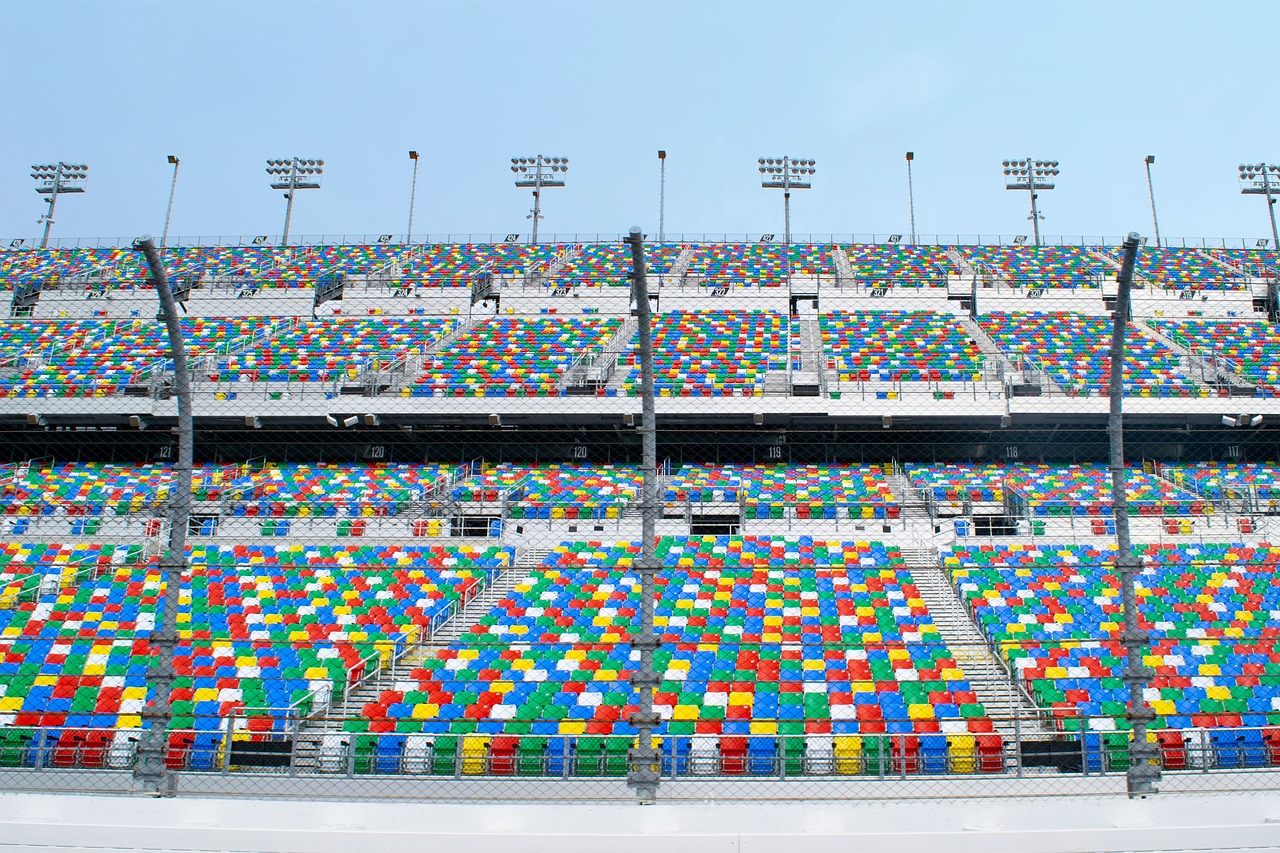
The Daytona 500 has been the stage for some of the most legendary drivers in NASCAR history. Names like Richard Petty, Dale Earnhardt, Jeff Gordon, and Jimmie Johnson have all tasted success at Daytona, becoming synonymous with the race itself. The rivalry between Petty and David Pearson, which produced the closest finish in Daytona 500 history in 1976, remains a cherished moment in the sport’s lore.
The Daytona 500 stands as not just a premier event in NASCAR but also as a hallowed ground where racing legends are forged. Over the decades, this race has witnessed the rise of iconic drivers who have left an indelible mark on the sport.
Richard Petty: Known as “The King” of NASCAR, Richard Petty’s seven Daytona 500 victories solidify his legendary status. His unparalleled success at Daytona International Speedway, often accompanied by his signature cowboy hat and sunglasses, has made him an enduring symbol of the race’s prestige.
Dale Earnhardt: Dale Earnhardt, fondly referred to as the “Intimidator,” was a force to be reckoned with at the Daytona 500. His triumphant victory in 1998, after years of near-misses and heartbreak, was a poignant moment in NASCAR history, and it immortalized him as one of the greats.
Jeff Gordon: Jeff Gordon’s mastery at Daytona is evident through his three Daytona 500 wins. His rivalry with fellow driver Dale Earnhardt added a layer of drama to the race in the 1990s, captivating fans and solidifying the event’s status as a spectacle of skill and strategy.
Jimmie Johnson: Jimmie Johnson, a seven-time NASCAR Cup Series champion, also etched his name into the annals of Daytona 500 history with a dramatic victory in 2006. His success at the race highlighted his versatility as a driver, further cementing his legacy.
The Petty-Pearson Rivalry: The rivalry between Richard Petty and David Pearson remains one of the most celebrated and enduring chapters in Daytona 500 history. Their dramatic finish in 1976, where Pearson edged out Petty in a thrilling last-lap duel, showcased the intensity and sportsmanship that define NASCAR. This moment remains a cherished part of the sport’s lore, symbolizing the spirit of competition and respect.
Evolution of Technology: The Daytona 500 has also been witness to the evolution of technology in NASCAR. From the classic muscle cars of the past to the modern, aerodynamically advanced vehicles of today, the race reflects the ever-changing landscape of motorsports.
International Appeal: The Daytona 500’s international appeal has grown steadily, drawing fans from around the world who come to witness the spectacle of speed and skill. The race’s global reach has expanded NASCAR’s fan base and added to its status as a premier motorsport.
In summary, the Daytona 500 is not just a race; it’s a hallowed arena where legends are born and rivalries are etched into history. It’s a stage where the spirit of competition, the pursuit of excellence, and the enduring love for speed converge, leaving an indomitable legacy in the world of motorsports. Each year, as new drivers take to the track and vie for victory, they become part of the race’s storied history, ensuring that the Daytona 500’s legendary status endures for generations to come.
Looking for more insights? You’ll find them right here in our extended coverage: How NASCAR’s ‘Closer’ is approaching his last Daytona 500
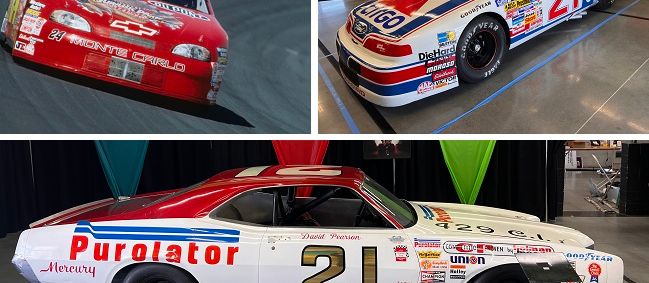
The Daytona 500 has not only showcased driving talent but also contributed to the advancement of motorsport safety and technology. Innovations like the SAFER Barrier (Steel and Foam Energy Reduction) and the HANS device (Head and Neck Support) were introduced and tested at Daytona, ultimately improving driver safety across the motorsport world.
“The Daytona 500, often dubbed ‘The Great American Race,’ has not only been a stage for showcasing exceptional driving talent but has also played a pivotal role in propelling the motorsport industry forward in terms of safety and technology.
A Hub for Advancements: Daytona International Speedway, with its high-speed oval and unique challenges, has served as a testing ground for pioneering safety innovations that have had far-reaching effects on motorsport as a whole.
SAFER Barriers: The introduction of the SAFER Barrier, a product of extensive research and development, was a game-changer in terms of driver safety. This energy-absorbing wall system, featuring a combination of steel and foam, was initially tested and implemented at Daytona. It significantly reduced the impact force in high-speed crashes, minimizing injuries and enhancing the survival chances of drivers.
HANS Device: Another milestone in motorsport safety came with the HANS device (Head and Neck Support). This groundbreaking innovation, which drastically reduces the risk of head and neck injuries in crashes, was also put to the test at Daytona. The device, worn by drivers to restrict head movement during impacts, has become a standard safety feature across various racing series worldwide.
Data and Telemetry: Daytona’s high-speed nature has driven the development of advanced data and telemetry systems. These systems not only provide valuable information to teams for performance optimization but also offer real-time monitoring of drivers’ health and safety. In the event of a crash or a sudden change in conditions, medical teams can respond promptly, potentially saving lives.
Influence on Motorsport: What starts at Daytona rarely stays at Daytona. Safety innovations and technological advancements proven effective in the high-pressure environment of the Daytona 500 tend to find their way into other racing series, further enhancing the safety standards of the entire motorsport community.
Safety Culture: Beyond the technology itself, Daytona has contributed to fostering a safety-first culture in motorsport. Drivers, teams, and race organizers have become increasingly aware of the importance of safety measures, training, and protocols, all with the aim of protecting lives on the track.
Continuous Improvement: The legacy of Daytona’s commitment to safety lives on in the ongoing pursuit of excellence. Each year, the race serves as an opportunity for manufacturers and engineers to fine-tune safety features and make incremental improvements in technology, knowing that the lessons learned here can benefit drivers everywhere.
In summary, the Daytona 500 isn’t just a thrilling spectacle of speed and skill; it’s a catalyst for change and progress in motorsport safety and technology. From SAFER Barriers to the HANS device and beyond, the innovations tested and validated at Daytona have made the sport safer for drivers, promoting a culture of continuous improvement that resonates throughout the motorsport world.”
If you’d like to dive deeper into this subject, there’s more to discover on this page: Head-and-neck restraints and soft walls top list of NASCAR’s biggest …

Attending the Daytona 500 is more than just witnessing a race; it’s a full-fledged experience. Fans gather in the infield, tailgating and camping, creating a vibrant atmosphere of camaraderie and celebration. The pre-race festivities, including the national anthem and the “Drivers, start your engines!” command, are moments of pure excitement.
nullTo delve further into this matter, we encourage you to check out the additional resources provided here: Daytona International Speedway: Home
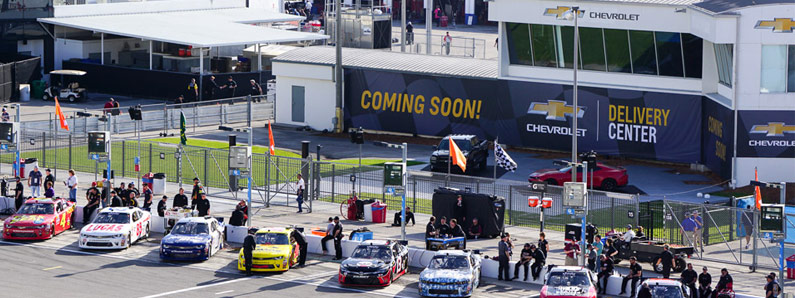
Conclusion
The Daytona 500 is a symbol of speed, adrenaline, and American racing heritage. Its impact on motorsport extends beyond the track, influencing the way we view safety, technology, and the sheer spectacle of racing. As each new edition of “The Great American Race” unfolds, it continues to captivate fans and drivers alike, reminding us of the enduring magic and passion that make the Daytona 500 an iconic event in the world of motorsport.
The Daytona 500 is a race that goes far beyond the asphalt of the track; it’s a symbol of a nation’s love affair with speed, competition, and the relentless pursuit of excellence in motorsport. Its legacy, deeply embedded in American racing heritage, reaches into multiple aspects of the sport and even beyond, leaving an indelible mark on the world of motorsport.
Innovation and Technology: The Daytona 500 has been a hotbed of innovation and technological advancements in racing. From the introduction of restrictor plates to limit speeds for safety, to the development of safer barriers and the evolution of aerodynamics, the race has played a pivotal role in pushing the boundaries of what is possible in motorsport. Innovations tested and refined at Daytona often find their way into other racing series, enhancing the safety and performance of race cars worldwide.
Safety Revolution: The tragic events of the 2001 Daytona 500, which claimed the life of Dale Earnhardt Sr., led to a significant shift in the focus on driver safety. The introduction of the HANS device (Head and Neck Support) and other safety improvements transformed the way motorsports addressed driver protection. The lessons learned from that fateful day have reverberated throughout the industry, making racing safer for drivers across the globe.
NASCAR’s Identity: The Daytona 500 is NASCAR’s crown jewel, and it defines the identity of the sport. The race’s history, prestige, and sheer spectacle have contributed significantly to the enduring popularity of NASCAR in the United States. It serves as the perfect introduction to stock car racing for newcomers and a thrilling annual tradition for long-time fans.
American Racing Culture: The Daytona 500 is deeply ingrained in American racing culture. It’s not just a sporting event; it’s a national celebration of horsepower, rivalry, and the spirit of competition. Fans from all walks of life gather to witness the spectacle, and the race has become a cultural touchstone, with watch parties and traditions that span generations.
Legends and Icons: The race has been the stage for legendary performances by iconic drivers. Names like Richard Petty, Dale Earnhardt, Jeff Gordon, and more recently, Jimmie Johnson and Denny Hamlin, have become synonymous with Daytona 500 success. The legends created at Daytona add to the race’s aura, inspiring future generations of drivers.
Global Appeal: While deeply rooted in American racing, the Daytona 500’s appeal reaches beyond borders. International audiences tune in to watch the spectacle, making it a global showcase of American motorsport excellence. The race brings together drivers from around the world, highlighting the international nature of motorsport.
Unpredictable Drama: The Daytona 500’s unique format, with restrictor plates, drafting, and the potential for “the big one” (a massive multi-car accident), adds an element of unpredictability that keeps fans on the edge of their seats. The race’s ability to deliver dramatic finishes and surprise winners further enhances its appeal.
In conclusion, the Daytona 500 is more than just a race; it’s a symbol of innovation, safety, and the rich tapestry of American racing culture. Its legacy stretches far beyond the confines of the track, influencing motorsport worldwide and captivating fans with its adrenaline-pumping action. As each edition unfolds, the Daytona 500 continues to remind us of the enduring magic and passion that make it an iconic event in the world of motorsport.
To delve further into this matter, we encourage you to check out the additional resources provided here: Ricky Stenhouse Jr. Wins Daytona 500 | THE BLOCK | Chevrolet
More links
Additionally, you can find further information on this topic by visiting this page: Examining Hendrick Motorsports’ DAYTONA 500 qualifying success …
